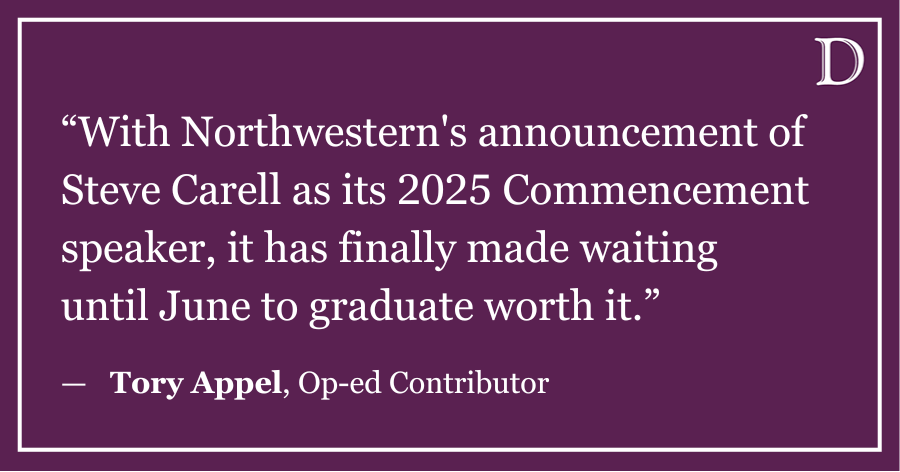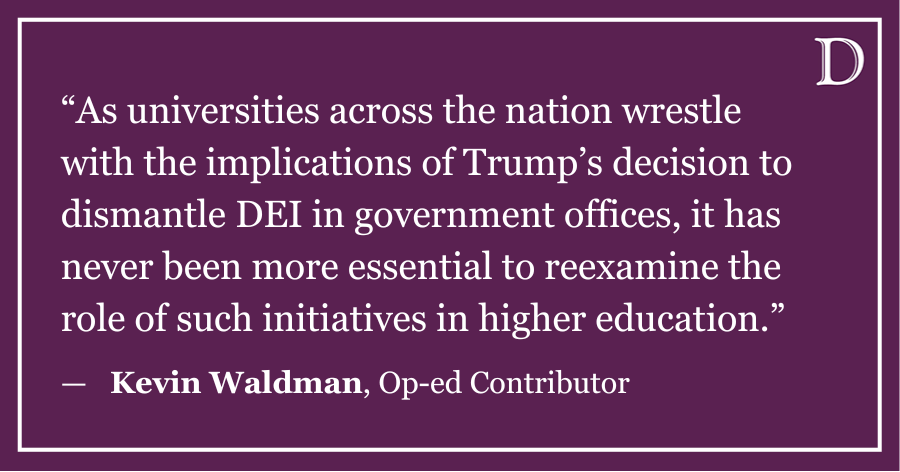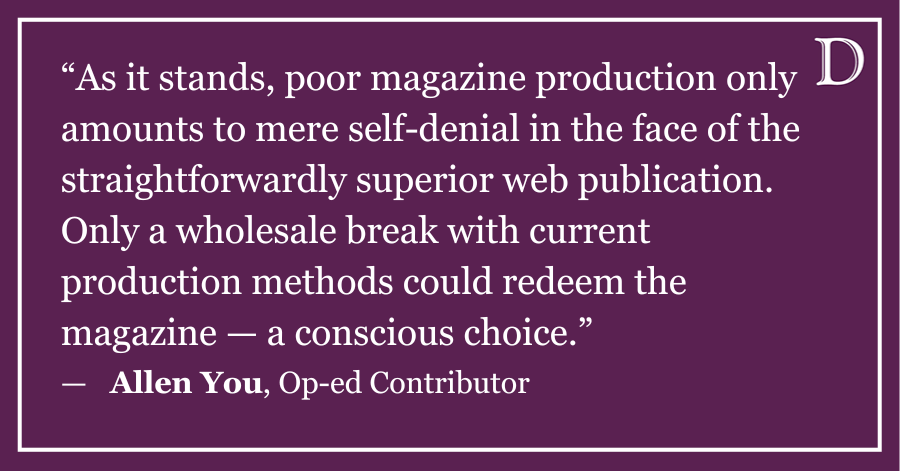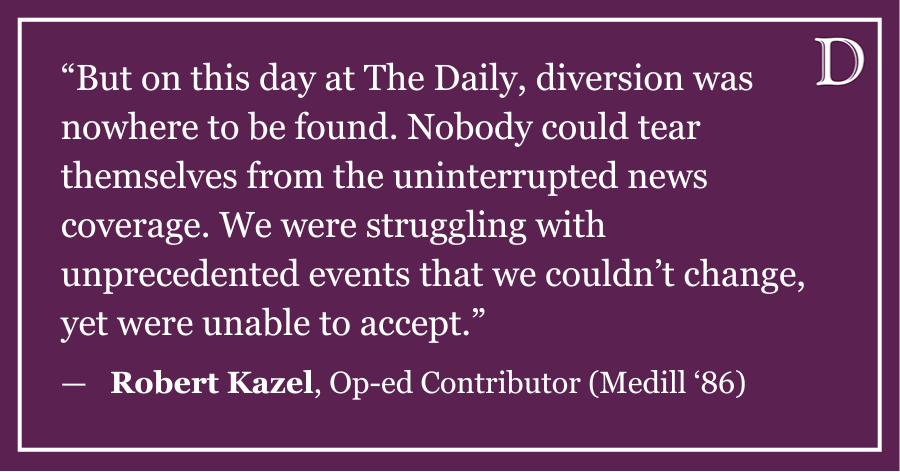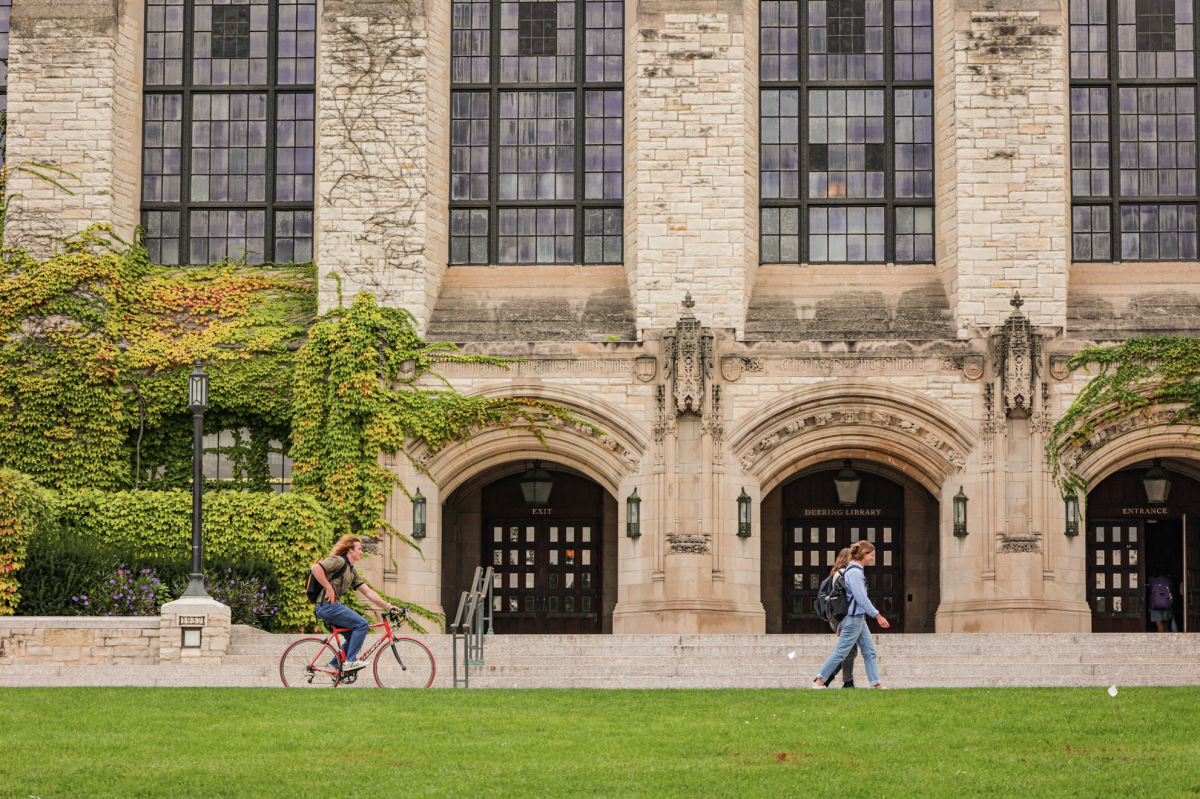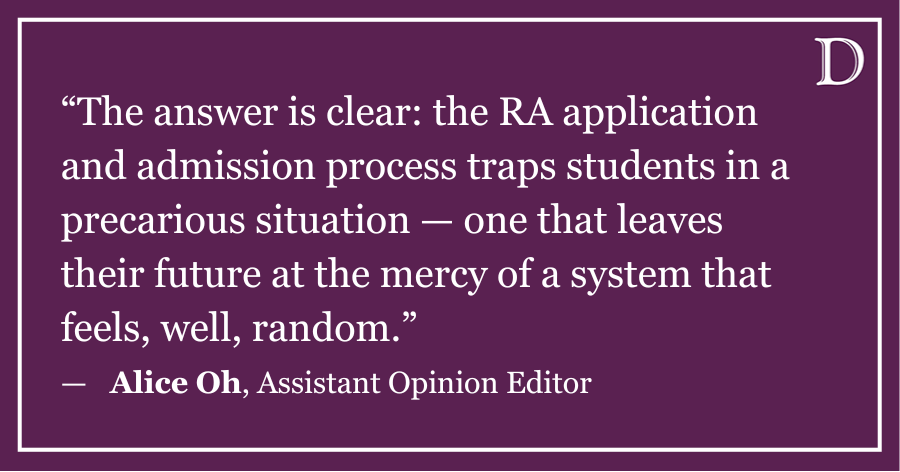Following the 2024 election, I thought that the shockingly large victory of our newly inaugurated president would force his strongest opponents to think more critically about the issues facing America.
Namely, I thought that authors of the buffet of pro-immigration articles would have to finally grapple with the fact that their fellow Americans —- and a near majority of Hispanics —- were sick and tired of having their communities be inundated with waves of illegal immigrants. However, I should have known this was a naive belief.
Having opened The Daily Northwestern’s website for the first time in months, I was rather disappointed upon seeing the headline: “Immigrants are not enemies, they are the heart of America.” Interestingly, the most informative portion of this article was actually the first five words which read: “Well, doomsday has officially passed.”
These few words alerted the reader that what followed would not be much more than outrage and an emotional response to an issue that warrants critical analysis. Additionally, the article’s content speaks more broadly to how those who run the opinion pages of our nation —- and our universities’ — premier publications will invariably shout “xenophobe” anytime the hardworking American people beg for the enforcement of democratically-passed immigration laws against those who defy them.
For decades, there has not been substantive debate about the role of immigration in America’s future, nor a shred of honesty about how it has shaped our past. To the demise of restrictionists, much of the debate is built on false pretenses that wholly serve the argument of those who believe America should open its doors to every individual who seeks “opportunities [not] available back home.”
Foundational to the immigration enthusiast’s worldview is the belief that America was built “from the ground up” by immigrants. Unfortunately for advocates of this view, America was built by settlers, not immigrants. This distinction is crucial —- settlers move to a place seeking to create a new society while immigrants come to a nation to join a pre-existing society.
Another part of Hernandez Gonzalez’s op-ed that illuminates society’s dishonest framing of the immigration issue is the erasure of the distinction between legal and illegal immigrants. Not once did Hernandez Gonzalez in his pro-immigration eulogy use the modifier “illegal” to describe the people who are “designating trusted friends as [their] power of attorney” or “installing security cameras on [their] front door in case U.S. Immigration and Customs Enforcement arrives.” This omission is glaring and intentionally deceitful. After all, my mother, an Iranian immigrant, is not taking these precautionary measures. Why? Because she came to the country in accordance with our nation’s laws, a choice that millions of people living in the U.S. refused to make.
To be clear, while omitting whether or not an immigrant entered the country legally is dishonest, there are many ways in which this distinction is irrelevant. Consider a world in which every immigrant who entered the U.S. over the past three decades did so legally. The effects of this population explosion would largely be the same: wages would be suppressed, classrooms would be overcrowded, urban sprawl would grow, social trust would decrease and communities would be fragmented along cultural and ethnic lines. These impacts on America and its citizens need to be subject to a robust public debate devoid of platitudes such as immigrants being the “heart of America.”
Before having this public debate, it is important to have an accurate picture of America’s experience with immigration. Too often we hear that the flood of immigration unleashed by the Hart-Celler Immigration Act and the non-enforcement of immigration law is in line with America’s character as a home for the world’s “tempest-tossed” when in fact, America’s experience with immigration has more complexity than this creation myth permits.
A common trend in American history is for immigration surges to be followed by long pauses. This happened following the wave of German migration, which ended after the Revolutionary War. And it happened again following the wave of Ellis Island immigrants, which was halted when Calvin Coolidge signed the 1924 Immigration Act. Before the passage of this restrictive legislation, the foreign-born population of the U.S. had reached a whopping 13.2% and much of the conversation surrounding it mirrors that which is occurring today.
Prior to each of the two pauses, fears over economic dislocation and the assimilation of these new ethnic and cultural groups into American society were widespread. For instance, Benjamin Franklin feared that German immigrants would “Germanize us [Americans] instead of us Anglifying them.”
Similarly, prior to the 1924 Immigration Act, A. Phillip Randolph, a pioneer in civil rights, said, “This country is suffering from immigrant indigestion … [It] over-floods the labor market, resulting in lowering the standard of living, race-riots and general social degradation.”
All the signs that America was experiencing “immigrant indigestion” back then are present now. The only difference is back then, all immigration —- legal and illegal —- was slashed, while today our government will take the latter seriously and ignore the former. The absence of discussions on cutting legal immigration today is not merely a response to rampant illegal immigration; it also stems from the spread and acceptance of historical revisionism and creation myths, as seen in pieces like Hernandez Gonzalez’s.
Lastly, I do not center my heritage around that of my Mexican and Persian ancestors “no matter where (I am).” Yes, I enjoy celebrating Naw Rúz and enjoy the occasional bowl of ghormeh sabzi, but I have adopted the American story and tradition as my own. I feel fortunate beyond words to have been born in this country and am deeply appreciative of the immigration patriots like Franklin, Randolph and Coolidge, whose efforts helped keep America American.
Caleb Nunes is a McCormick junior. He can be contacted at calebnunes2026@u.northwestern.edu. If you would like to respond publicly to this op-ed, send a Letter to the Editor to opinion@dailynorthwestern.com. The views expressed in this piece do not necessarily reflect the views of all staff members of The Daily Northwestern.
